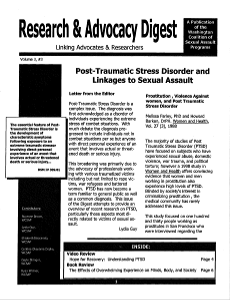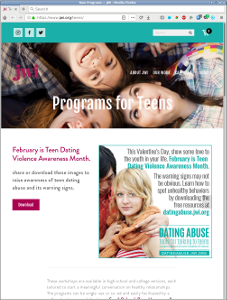Post-Traumatic Stress Disorder (PTSD) is a complex issue. The diagnosis was first acknowledged as a disorder of individuals experiencing the extreme stress of combat situations.
PTSD has now become a term familiar to the general public as well as a common diagnosis. This issue attempts to provide an overview of recent research on PTSD, particularly those aspects most directly related to victims of sexual assault.
…

